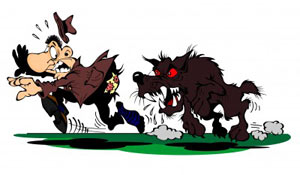Heads Up Poker Tips & Strategy
 Getting to the final stage of a tournament and reaching heads up play is satisfying because you already achieved two of your sub-goals, the first reaching the final table, and the second reaching the top 3.
Getting to the final stage of a tournament and reaching heads up play is satisfying because you already achieved two of your sub-goals, the first reaching the final table, and the second reaching the top 3.
At the very least you know your going to get well paid even if you finish 2nd and now you have a shot at the top prize and the glory of the tournament win. It’s always great to get there but I don’t even think about it at all until the tournament is done.
You’ll have time later to reflect on how you think you did and decide then that you are happy with 2nd place. Of course everyone wants 1st but after a tournament is done I try to always look at the positives and analyse where I might improve my game. In short I’ll take the money, learn from any mistakes I made or equally as important things I did that worked and move onto the next tournament.
Getting an Edge over your Opponent
I can tell you that I am more relaxed at this stage than I am at any stage earlier in the tournament. For the reasons above but also because I have had some time now to study my opponent and get a feel for his play. I believe that because I am such an observant player this gives me an edge.
Once you’ve reached heads up you have had some time to observe and analyse this player and hopefully already have some idea in mind of a good strategy to counter the style of player he/she is. I think each time you reach heads up it is a unique situation and should be treated as such.
In heads up play you usually don’t get a lot of strong hands. But equally you are only playing against one single opponent, which means that the value of starting hands increase significantly. Suddenly any hand that contains an Ace is a very strong hand when earlier in the tournament against multiple opponents you wouldn’t use it to wipe your …… well you get the picture.
I like to play any ace hard with a healthy raise (usually 3 times the big blind because it is so big at this point). I also like to play connectors and any two paint cards together. I will also consider any hand with a King in it.
This is where you have to be flexible as a player
By that I mean you have to be able to change your style depending on your opponent. Some opponents I have played will do nothing but push or fold heads up. To me that tells me my opponent is not to confident in his post flop play and relies on blind aggression.
That’s ok, that’s exactly what I might do if I thought I was up against a much better player. If that happens and my opponent is pushing or folding, depending on my chip stack of course, I will wait for a strong hand and just call or check hoping he might push.
By strong hand I mean any Ace, KQ, KJ, QJ, any pairs … Chances are my opponent will push if he has a relatively good hand. With an opponent like this luck takes a bigger part in deciding the winner.
On the other side of the coin, if I have an opponent who is willing to play post flop or seems a little tight I tend to raise more pots because if he calls you know he has got something. It is likely though that you can push him off more pots and pick up a fair amount of chips that way.
To me the trick is you have to be flexible going to heads up play. You have to adapt your play so that your chances of winning increase. It also keeps your opponents guessing. If you have suddenly started raising and pushing when most of the tournament you’ve been playing tight and aggressive your opponent won’t know what to do next. Keep him always guessing. Make your opponent react to your moves.
Going Head to Head
Aggression is important in heads up poker. Usually the most aggressive player will have the advantage in a heads up battle. But it must be used wisely.
Blinds are large at this stage and picking up more uncontested pots than your opponent will soon put you in the driving seat. Even if he plays back at you from time to time, your profits from previous hands should cover it.
I like to be aggressive before the flop, with the intention of either picking up the pot uncontested or being in the driving seat going into a flop where I know my opponent is going to miss two thirds of the time and I can put more pressure on him on the flop.
By aggression I mean either throwing your hand away or putting in a raise to play a hand. In most situations I don’t like just calling in a heads up hand, as that leaves my opponent in the driving seat and makes me work a lot harder during the hand to get information from him (how do you know if a bet on the flop is a continuation bet or showing real strength?).
As I said when playing heads up you usually get a lot of junk and so is your opponent so your definition of a strong hand changes, as it does from stage to stage. The usually premium hands A-A, K-K, Q-Q, A-K are joined by any pair, any good A-x hand and also any good K-x hand. I will also use connector cards like 10-9, J-10 etc. to raise with.
If I am the aggressor before the flop then I am going to continue to be the aggressor after the flop. If my opponent calls or plays back at me then I will try and work out his likely hand based on his actions and the information I know about how he is playing.
If I hit anything on the flop then I know I am probably in a strong position, but I will run through all possibilities in my head. In heads up play, even just hitting middle or bottom pair can put you way into the lead.
If my opponent is a tight player then I will be relentless and a constant bully. I hate bullys in real life, but in poker it is just part of being a good player.
Bullying does not mean Bluffing
Please note, by bullying I do not mean bluffing. I never bluff heads up. I have just been looked up to many times in the past and lost. I have totally eliminated bluffing when heads up and have seen an improvement in my results.
I will use continuation bets after the flop to see if my opponent has missed the flop (which I guess is a form of bluffing), but if my opponent is calling me then I will only continue on the turn and river if I have a hand that I believe is in the lead.
Big Chip Disadvantage
If you are at a big chip disadvantage to your opponent (say 3 to 1 or 4 to 1) then I would advocate just pushing all in pre-flop with any good hand. You need to turn this situation around, and the best way to do that is to use all the fold equity available to you and put your opponent to the test over and over again.
He will be wary about giving chips to you and letting you back into the game so he may find it hard to call your all in bets. If he doesn’t call then the large blinds you pick up will soon start to turn the tides. If he does then the chances are you will still have a decent % chance of winning the hand and doubling up, even if he is favourite and you have to get lucky.
I’ve been heads up several times with a tight player who is content to see his/her chips blinded off until they have to push with any two cards. I ask you what is the sense in that?
Big Chip Lead
Consequently if you are in the chip lead by the same margin then you have to protect against your opponent doing just this. I suggest going for the win, don’t be worried about losing your chip advantage, get in with the aggression before your opponent does.
Again I would pressure my opponent for a preflop decision by going all in. Every decision he/she makes is now a decision for their tournament life.
Go for the Win
There are several ways to approach heads up. Hopefully you have some information on the player you are up against and can use that to your advantage. If not I usually find that preflop aggression has served me well. Always make your opponent react to your moves, and make the decisions. Be in control of your opponent and put all the hard decisions on them.
In poker tournaments, I believe it is so beneficial to be the one acting, forcing your opponents to make the decision, giving them the opportunity to make a mistake, tiring them out. Be proactive not reactive. Reactive usually costs you chips and money. The worst thing you can be in poker is predictable!
I hope you have enjoyed this How to Win a Poker Tournament Guide and have learnt something from it. No doubt you will add to the strategy I have shown you and over time develop your own version of it and that is the correct thing to do. Learn what works for you and what doesn’t and adjust your strategy accordingly.
I’d love to hear any success stories in the comments below. It took a lot of effort writing this guide and it would be great to hear that it has helped somebody.
Good Luck, and see you at the final table.
Next in Series:
Section Navigation

Trust & Security
I'll only recommend Safe & Trusted sites with a proven track record
By Game Type
Different rooms are better for different game types & stakes
Beginner Friendly
I'll find you a site with players of a similar skill level
Promotions
I'll find you the best value Promotions, Bonus & Freebies!

 Return to the
Return to the 
